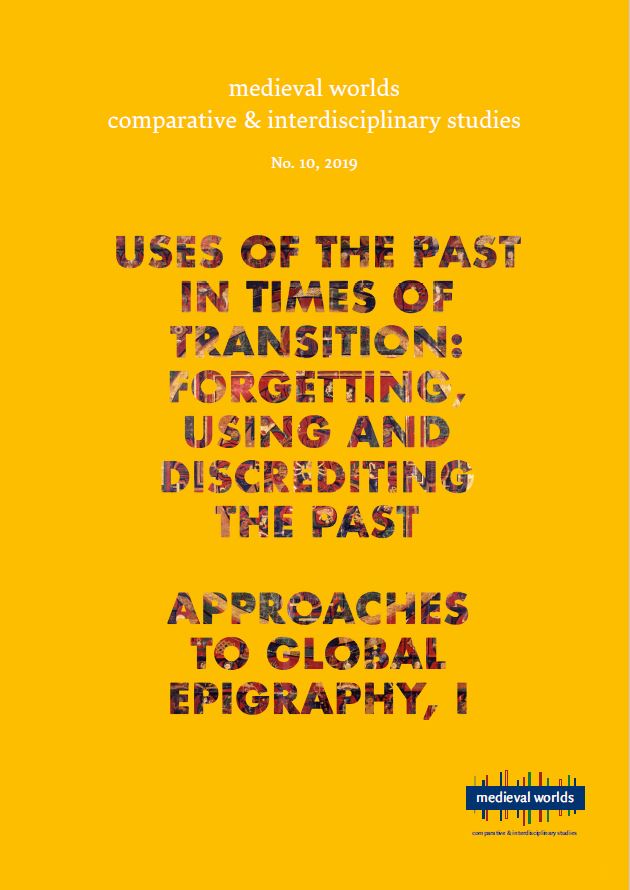|
 |
medieval worlds provides a forum for comparative, interdisciplinary and transcultural studies of the Middle Ages. Its aim is to overcome disciplinary boundaries, regional limits and national research traditions in Medieval Studies, to open up new spaces for discussion, and to help developing global perspectives. We focus on the period from c. 400 to 1500 CE but do not stick to rigid periodization.
medieval worlds is open to submissions of broadly comparative studies and matters of global interest, whether in single articles, companion papers, smaller clusters, or special issues on a subject of global/comparative history. We particularly invite studies of wide-ranging connectivity or comparison between different world regions.
Apart from research articles, medieval worlds publishes ongoing debates and project and conference reports on comparative medieval research.
Table of Contents
Uses of the Past in Times of Transition:
Forgetting, Using and Discrediting the Past
Introduction. Making the Past in Late and Post-Carolingian Historiography
Maximilian Diesenberger
The Church as a Governance Actor in a Period of Post-Imperial Transition:
Delegation of Fiscal Rights and Legal Change in 10th-century Churraetia
Stefan Esders
Understanding the Church’s Past:
Usuard’s Martyrology in Tenth-and Eleventh-century England
Sarah Hamilton
Creating an »Orthodox« Past:
Georgian Hagiography and the Construction of a Denominational Identity
Emma Loosley Leeming
Using the Carolingian Past in a Society of Transformation:
The Case of Early Medieval Septimania/Catalonia in the Long Tenth Century (900-1050)
Matthias M. Tischler
Uses of the Past in Early Medieval Iberia (Eighth-Tenth Centuries)
Jorge Elices Ocón and Eduardo Manzano Moreno
Royal Marriage, Frankish History and Dynastic Crisis in Regino of Prüm’s Chronicle
Eric J. Goldberg and Simon MacLean
Negotiating the Roman Past in Later Tenth-century Armenia
Tim Greenwood
Aitire, 人質, тали, όμηρος, رهن , obses: Hostages, Political Instability,
and the Writing of History c. 900-c. 1050 CE
Alice Hicklin
Approaches to Global Epigraphy, I
Global Epigraphy: The Scholarship on Inscriptions of Eurasia
from Antiquity to the Early Modern Period
Andreas Rhoby, Veronika Scheibelreiter-Gail and Andreas Zajic
Archaeological Contexts of Inscriptions in the Private Sphere:
The Mosaic Inscriptions of a villa rustica in Skala/Cephalonia
Elisabeth Rathmayr and Veronika Scheibelreiter-Gail
Inscriptions in Areas of Historical Western Tibet (mNga’ ris skor gsum) in their Contexts:
A Brief Overview with Selected Examples
Christian Jahoda
Byzantine Connections
History and Exegesis in the Itinerarium of Bernard the Monk (c. 867)
Daniel Reynolds
|




 Home
Home Print
Print
 References
References
 Share
Share
